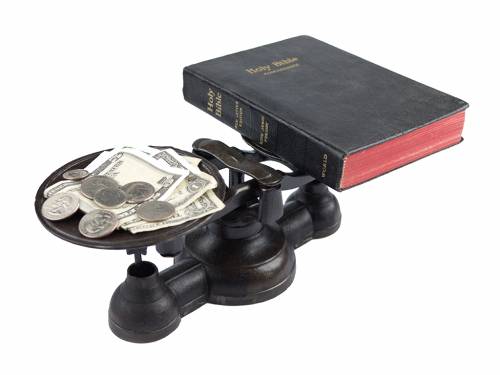Correlation exists between higher education and income
by Gregg Brekke | Presbyterian News Service
 LOUISVILLE – A recent breakdown of the Pew Research Center’s 2014 Religious Landscape Study ranked Presbyterian Church (U.S.A.) members fourth in its percentage of households that earn more than $100,000 annually. The study authors found a strong correlation—based on religious affiliation—between a person’s income and the level of education they have attained.
LOUISVILLE – A recent breakdown of the Pew Research Center’s 2014 Religious Landscape Study ranked Presbyterian Church (U.S.A.) members fourth in its percentage of households that earn more than $100,000 annually. The study authors found a strong correlation—based on religious affiliation—between a person’s income and the level of education they have attained.
The study reported that among PC(USA) households, 32 percent earned $100,000 or more, 29 percent earned between $50,000 and $99,999, 15 percent earned between $30,000 and $49,999 and 24 percent earned less than $30,000. Only households of Jewish, Hindu and Episcopalian adherents had a greater percentage of $100,000 earners at 44, 36 and 35 percent respectively. PC(USA) families also edged out those who self-defined as atheist and agnostic who reported 30 and 29 percent $100,000 earners respectively.
Closely related to income, according to the November 4 report, is education. While not a mirror image of the income ranking, the percentage of college graduates in an affiliated group follows a similar pattern with the top six being Hindu (77 percent), Unitarian Universalist (67 percent), Jewish (59 percent), Anglican (59 percent), Episcopalian (56 percent) and PC(USA) (47 percent).
Study authors summarized the connection, saying, “Given the strong correlation between educational attainment and economic success, it is not surprising that Jews and Hindus, on average, have high household incomes, with four-in-ten Jews and roughly a third of Hindus living in households with annual incomes of at least $100,000, according to the 2014 study.”
As a national average, 19 percent of U.S. households earned more than $100,000 annually and 27 percent of individuals have earned a college degree.
But study authors were quick to “call into question any link between high levels of religious belief and wealth,” saying self-identified atheists and agnostics had greater percentages of $100,000 earners than households of Orthodox, United Church of Christ, Evangelical Lutheran Church in America, United Methodist and Presbyterian Church in America congregations. Again, while not exactly matching the percentage of college graduates in each group, there is a convincing correspondence.
“While there is a strong and proven correlation between education and income, it’s harder to know whether there also is a link between religion and wealth,” study authors said. “What we can say is that members of some religious groups – not to mention atheists and agnostics – on average have a higher household income than others and those in the richest religious groups also tend, on average, to be better educated than most Americans.”
![]() You may freely reuse and distribute this article in its entirety for non-commercial purposes in any medium. Please include author attribution, photography credits, and a link to the original article. This work is licensed under a Creative Commons Attribution-NonCommercial-NoDeratives 4.0 International License.
You may freely reuse and distribute this article in its entirety for non-commercial purposes in any medium. Please include author attribution, photography credits, and a link to the original article. This work is licensed under a Creative Commons Attribution-NonCommercial-NoDeratives 4.0 International License.
Categories: Presbyterian News Service
Tags: denomination, education, faith, income, pcusa, pew, presbyterian, religious landscape study, wealth